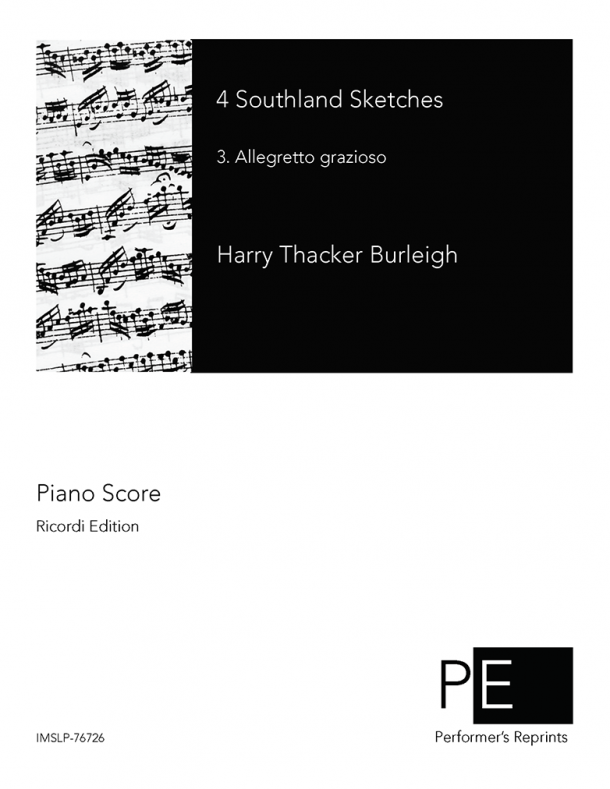Obscure Music Monday: Burleigh's Southland Sketches No. 3 Allegretto grazioso
Henry Thacker "Harry" Burleigh (Dec. 2, 1866 - Sept. 12, 1949) was an African-American composer, arranger, and baritone born in Erie, Pennsylvania. Burleigh is well known for introducing spirituals and folk songs to classically trained singers, in more classically arranged versions for them. He grew up hearing spirituals and slave songs from his grandfather, who suffered the deep injustice of slavery himself (he was eventually granted freedom, by buying his, and his mother's way out of slavery).
Burleigh was taught spirituals and slave songs from his grandfather, and would go on to become am accomplished singer in the Erie area, singing at churches and synagogues. At the age of 26, he was accepted in to the National Conservatory of Music in New York, and eventually played the double bass in the conservatory orchestra. While in school, he did some janitorial services at the conservatory, and liked to sing while working. In doing so, he caught the attention of none other than Antonin Dvořák, who asked him to sing for him often. Dvořák would go on to incorporate these melodies in his compositions. Burleigh graduated in 1896, and later on became faculty at the conservatory.
While Burleigh is often most known for his songs and choral compositions, he did also write a few instrumental works, including Southland Sketches for violin and piano, which are a salon-like group of movements. We are looking at the third movement, the allegretto grazioso. With a folksong-inspired melody and fun rhythms, this movement is light-hearted and happy-go-lucky. The violin has some fun double stops scattered about, and the piano has some really fantastic harmonies that add even more depth and character to this wonderful movement.
Here's a recording of this lovely work for you to enjoy!


